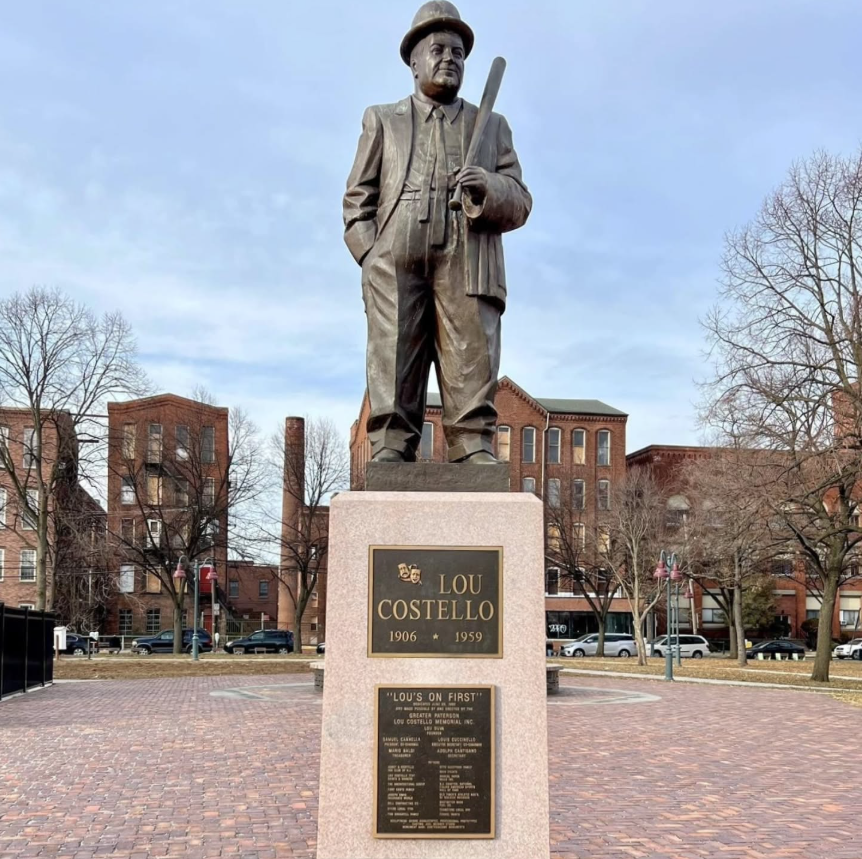The Latest In NJ Law:
August 22nd, 2017 – Update on Search & Seizure of a Motor Vehicle
On August 22nd, 2017, the Supreme Court addressed the issue of when did a defendant’s interaction with a police officer escalate from a minor field inquiry to an investigative detention AND what was the reasonable suspicion justifying the investigative detention. In the State of New Jersey v. Lurdes Rosario, the Defendant was blocked in by the officer’s car, who then shined his light into her car, and approached her driver side to address her. The Court walked through a SIX Step analysis of each aspect of this decision holding that where the investigative detention began and a closer look into the reasonable suspicion as justification. To read the case and get more in-depth in the Court’s analysis, click here.
August 17th, 2017 – Update on Wrongful Conviction Compensation
On August 17th, 2017, a Three Judge Appellate Division Panel in Kamienski v. New Jersey ruled that the Plaintiff was not eligible for the State’s Mistaken Imprisonment Act compensation. Paul Kamienski had served more than 20 years in prison on a double murder conviction before the release. The Appellate Division is requiring the Plaintiff to prove he was actually innocent by clear and convincing evidence. Previously, Mercer County Superior Court Judge Darlene Pereksta awarded him $343K in compensation and $90K in attorneys fees. The former funeral director was convicted of the double murder of Henry and Barbara DeTournay in what was speculated as a drug deal gone bad. Read More about this Case here.
August 15th, 2017 – Update on DNA Collection in Municipal Court
Effective July 1, 2017, the New Jersey Department of Law and Public Safety will require DNA collection for Nineteen (19) disorderly persons offenses at the time of conviction. The State Police memo dated May 12, 2017 can be viewed here. At the time of collection, the offender’s identity must be electronically verified via the LiveScan machine using the Criminal Inquiry option, not Criminal Arrest as Criminal Arrest prints were already taken at the time of arrest. Care must be taken to avoid taking Criminal Arrest prints from a subject for the same offense twice.
The Nineteen (19) Disorderly Persons Offenses that will trigger DNA Collection include: (1) Domestic Violence Simple Assault Causing Bodily Injury, (2) Domestic Violence Simple Assault by Threat or Physical Menace, (3) Domestic Violence Restraining Order, (4) Domestic Violence Contempt, (5) Loitering to Obtain or Distribute CDS, (6) Prostitution, (7) Promoting Prostitution, (8) Being Under the Influence of CDS, (9) Possession of CDS by Failure to Voluntarily Deliver the CDS to a LEO, (10) Inhalation of Toxic Chemicals for the Purposes of Intoxication, (11) Possession of Toxic Chemicals for the Purposes of Intoxication, (12) Distribution of Prescription Drugs without a Prescription, (13) Possession of Prescription Drugs without a Prescription, (14) Possession of Prescription Drugs in Four Doses or Less, (15) Possession of Certain Prescription Drugs, (16) Restrictions on Retail Sales of Ephedrine Products, (17) Possession of Drug Paraphernalia, (18) Possession of Hypodermic Syringe or Needle, and (19) Sale by Licensed Pharmacy of Hypodermic Syringe or Needle.
August 1st, 2017 – An Update on the Bail Reform Act
On August 1st, 2017, the Supreme Court of New Jersey, in an opinion by Chief Justice Stuart Rabner and joined by Justices LaVecchia, Albin, Patterson, Fernandez-Vina, Solomon, and Timpone, affirmed the opinion of the Appellate Division in the State of New Jersey v. Amed Ingram (A-56-16) (079079) (449 N.J. Super. 94 (App. Div. 2016) which held that a live witness is not mandatory at a detention hearing.
The decision of the Appellate Division discussed the following: “Defendant appealed from an order detaining him pretrial pursuant to the Bail Reform Act (the Act), N.J.S.A. 2A:162-15 to -26. The State presented the complaint-warrant, the affidavit of probable cause, the Preliminary Law Enforcement Incident Report and the Public Safety Assessment to establish probable cause for defendant’s arrest and grounds for detention. Collectively, the documents demonstrated that a firearm had been discharged, police officers personally observed defendant in possession of a gun and seized the weapon and spent shell casings. Pretrial Services recommended that defendant be detained, or released with the highest level monitoring, including electronic monitoring.
Defendant objected, arguing a live witness with knowledge of the incident sufficient to permit meaningful cross-examination was required. The judge overruled the objection, considered the State’s proffered evidence and entered the order of detention.
On appeal, defendant argued that permitting the State to establish probable cause by proffer and without calling a witness violated his due process rights and the Act. The Court disagreed and affirmed the detention order, finding that allowing the State to proceed by proffer did not violate due process or the Act. However, the court noted that at detention hearings under the Act, the judge retains discretion to reject the adequacy of the State’s proffer and compel production of a “live” witness. “
The decision of The Supreme Court of New Jersey affirming that decision discussed the following: “Criminal defendants in New Jersey facing pretrial detention under the state’s new bail system do not have an automatic right to confront witnesses at their hearings, the state Supreme Court ruled on Tuesday.
In a unanimous ruling, the court said a prosecutor’s proffer of a witness’s testimony will generally suffice if pretrial detention is being sought, although the justices took care to point out that a judge retains the discretion to require live testimony from a witness if he or she is dissatisfied with the state’s proffer.
In the case decided Tuesday, the court rejected arguments that defendants should have the right to cross-examine witnesses in pretrial detention hearings. Nothing in the new system, Rabner said, suggests that live witnesses are needed to determine whether a defendant should or should not face pretrial detention.”
To read more about the case or read the most recent opinion, click here.
July 11th, 2017 – An Update on Search & Seizure in General
On July 11th, 2017, the New Jersey Supreme Court, in an opinion by Hon. J. Fernandez-Vina, adopted the federal standard barring unnecessary delays for the purpose of canine sniffs. Officers do not need reasonable suspicion of a drug offense provided that the canine sniff does not prolong the stop beyond the time required to complete the stop’s mission. To read more about the case, State v. Mark Dunbar (A-94-15) (077839), click here to read the opinion.
July 10th, 2017 – An Update on Recording of Law Enforcement from the 3rd Circuit
On July 7th, 2017, the United States Court of Appeals for the Third Circuit, which oversees Delaware, Pennsylvania, and the Virgin Islands, as well as New Jersey, joined an ever-growing list of Federal Courts in allowing the recording of law enforcement as it is protected by the 1st Amendment to the United States Constitution. In Fields v. City of Philadelphia and Geraci v. City of Philadelphia and Several Individually Named Police Officers, the Court, in a decision delivered by the Hon. Thomas L. Ambro, stated,
“We ask much of our police… They can be our shelter from the storm. Yet officers are public officials carrying out public functions, and the First Amendment requires them to bear bystanders recording their actions. This is vital to promote the access that fosters free discussion of governmental actions, especially when that discussion benefits not only citizens but the officers themselves.”
The opinion, which references the controversial beating of Rodney King by LAPD in what many call as the peak of police misconduct, did not give the public an absolute right to record police. Ambro asserted that there are restrictions including, one for example, that if recording interferes with an investigation or exposes a CI or confidential informant.
ACLU Attorney Molly Tack-Hooper, whom argued the case before the Court, said, “The police cannot operate in a shroud of secrecy…The fundamental right to document police activity is crucial to deter misconduct and gather information about how police use their power. Today’s ruling strengthens that important concept.” To read the opinion, click here.
June 22nd, 2017 – An Update on Avvo / Legal Zoom / Rocket Lawyer
On June 22nd, 2017, in a joint opinion by Three New Jersey Supreme Court committees (on Professional Ethics, on Attorney Advertising, and on Unauthorized Practice of Law), the State of New Jersey has blacklisted Three (3) Web-Based Services – Avvo, LegalZoom, and Rocket Lawyer from usage within the State for problems with the Fee-Sharing with Non-Attorneys, Impermissible Referral Fees, and not being registered with the Judiciary. To read more about the opinion, click here.




